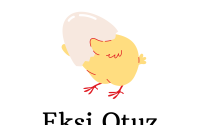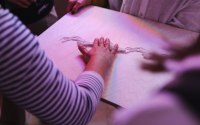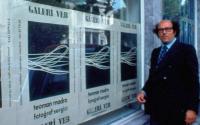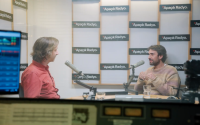Booker, müzik programlamacısı, etnomüzikolog Duygu Mühürdar ile müzik sektöründe mentor eksikliğini, kurumların ve yetkin profesyonellerin yalnız bıraktığı gençleri, zaten az olan pozisyonlardaki gatekeeping’i ve olabilecek çözüm önerilerini konuşuyoruz.
Scroll down for the English version.
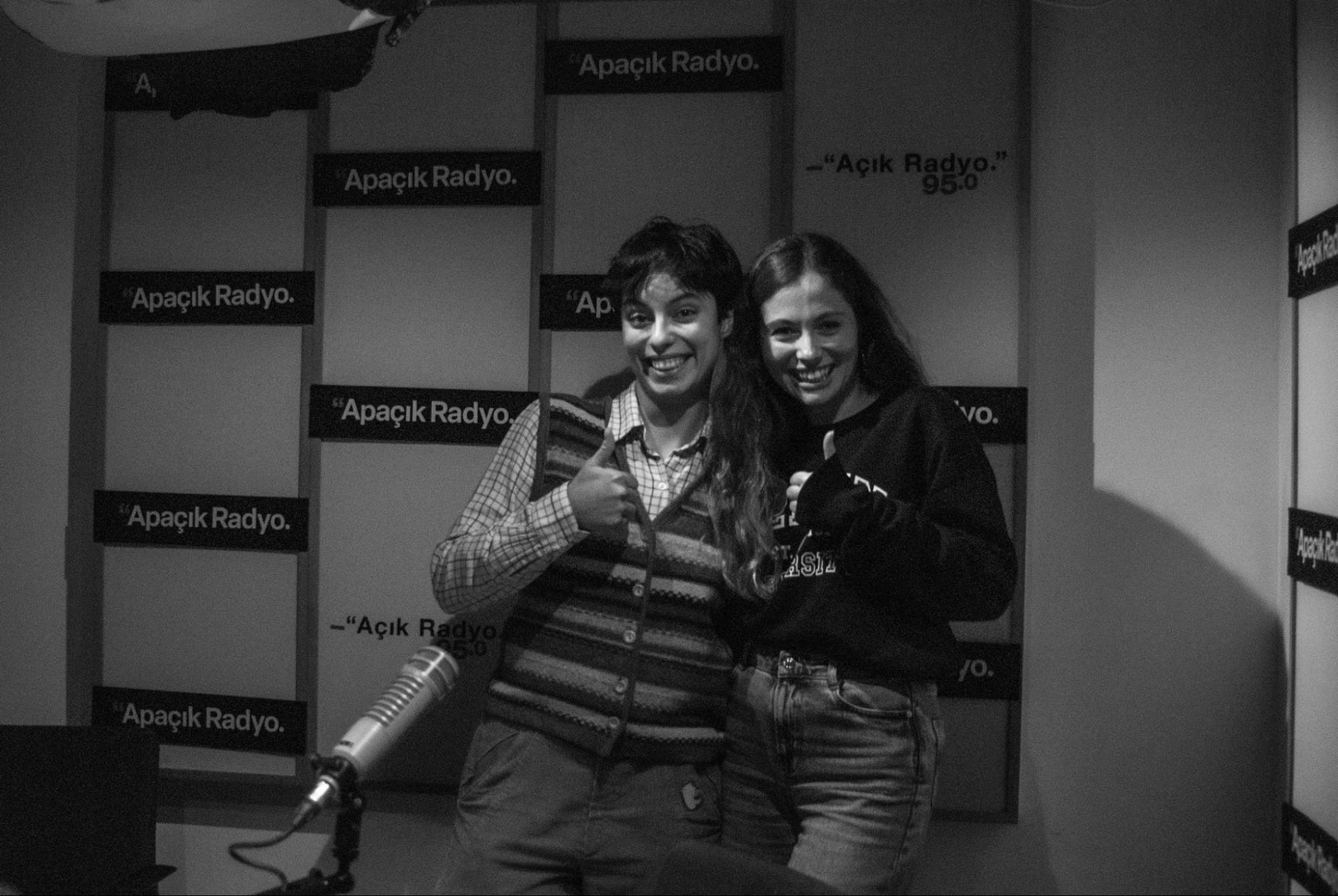
Bihter Çetinyol: Evet, herkese en içten sevgilerimle hoş geldiniz demek istiyorum. Bu kadar sakin konuşuyor olmak benim için çok büyük... Evet, evet, evet.
Şimdi bugün Duygu Mühürdar'la beraberiz. Duygu, davetimi kabul ettiğin için özellikle teşekkür ederim. Çünkü benim için çok anlamlı. Eksi Otuz'dayız bugün. Ve Eksi Otuz, müzik sektöründe... Ama yani tam olarak müzik sektöründe de değil, kültür-sanat alanlarında çalışan, bir şeyler üreten, kendini var etmeye çalışan insanların aslında gençlerin, çünkü otuz yaş altındaki insanları hedeflemek istiyorum, deneyimlerini anlattıkları ve gerçekten nasıl hayatta kaldıklarını dinlemek istediğim çünkü ben de çok anlatmak istiyorum bir program olması hayaliyle başladı.
Dolayısıyla buraya gelen insanlar, buraya gelen konukların hepsi çok değerli. Gerçekten hayatta bir şeyler yapmak istiyorlar. Ve Duygu, onu ilk tanıdığım zamandan beri bana ilham veren isimlerden biri oldu. Dolayısıyla da geldiği için teşekkür ederim.
Ben Bihter Çetinyol. Yaklaşık üç senedir müzik sektöründeyim çoğunlukla olarak. Aslında sanat tarihçiyim. Ve gerçekten bir sürü farklı yönüm var. Ama bence bunları konuşmamıza gerek yok. Çünkü daha önümüzde birçok program var. Dolayısıyla biraz Duygu'dan bahsetmek istiyorum. Sonrasında da müzik sektöründe bugünün konusu olan mentor eksikliği ve aslında gatekeeping diyebileceğimiz bekçilik üzerine konuşacağız. Duygu booking yapıyor. Yani konser planlıyor, programlıyor. Ve kendisi bir etnomüzikolog. Yani akademik bir geçmişi de var. Hoş geldin Duygu.
Duygu Mühürdar: Hoş buldum. Öncelikle çok teşekkür ederim. Dahil edilmek her zaman çok değerli. Otuza da az kaldığı zamanda böyle bir programın içinde olmak özellikle daha büyük bir değer taşıyor. Söylediğin gibi ben booking ve programlamayla uğraşıyorum. Bu konuda danışmanlık veriyorum. Artık bağımsız bir birey olarak kurumsaldan çıkmış bir şekilde. Fakat farklı şapkalar denedim. On yıldır sektörün içerisindeyim. Güncel olarak Marie Claire Türkiye'de dijital müzik editörlüğü yapıyorum. Aynı zamanda YouTube programım var. Burada da müzik, sosyoloji, siyaset ve aslında sosyal bilimleri konu edindiğimiz ama güncel konulardan da kendimizi ihmal etmediğimiz bir program gerçekleştiriyorum. Aynı zamanda kürasyon tarafındayım işin. Gerek radyoda, gerek etkinlik kürasyonunda... Gerek müzikal projeler üretmede, müzisyenleri birbiriyle tanıştırmada veya sektör aktörlerini ve festival kürasyonlarını da diyelim. Aynı zamanda workshoplar veriyorum. Konferanslarda konuşmacılık yapıyorum. Tam da bu bahsettiğimiz konular üzerine. Yani bunun bir tarafı kültürel diplomasi. Bu konudaki çalışmaların çok önemli olduğunu düşünüyorum. Fakat bunu tabii ki bireysel düzeyde yapıyorum.
Öbür taraftan da... Müzisyenlerin aslında yolculuklarında özellikle uluslararasılaşmak isteyen müzisyenlerin kendilerinin nasıl export yani ihraç edecekleri üzerine eğitimler veriyorum. Veyahut sektördeki oryantalizm, dışlama, yaşçılık, bekçilik ve mentorluk eksikliği gibi konularda. O yüzden çok teşekkür ediyorum. Bence programa başlamak için harika oldu. Aslında sosyal bilimler yani diplomasi geçmişliyim, alan dışından geldim. Köprüden önce son çıkış şeklinde müziğe yöneldim ve etnomüzikoloji okudum. Ama böyle caz vokallikle başlayan bir yerden bambaşka şeyler deneyip kendimi işte bu booking ve kürasyon camiasında buldum diyebiliriz.
Bihter Çetinyol: Güzel, çok güzel gerçekten de. Zaten aslında müzik sektöründe veya sanat sektöründe çalışan birçok insan senin gibi, benim gibi ve bizler gibi aslında birçok alanda birçok şey yapmaya çalışıyorlar. Genellikle, “e peki ne yapmak istiyorsun?” “Yani hangi alanda bir şeyler yapmak istiyorsun?” dedikleri zaman genellikle bir cevabı olmuyor. Çünkü yeteri kadar deneyemiyoruz, yeteri kadar yönlendirme alamıyoruz. Olan şeyi görebileceğimiz yeteri kadar alan da yok. Gözlemleme fırsatımız da yok. Zaten aslında bugün bu yüzden buradayız ve bunu konuşacağız. Peki, şimdi bir sürü şeyden bahsettin. Bir sürü şey yapmışsın. Ve zaten bugünün konusu mentor eksikliği. Mentor... Yani bir mentora ihtiyacın olduğunu nasıl fark ettin? Ve bu eksikliği fark ettikten sonra senin gelişimini ya da ilerlemeni, kariyerini nasıl etkiledi? diye sormak istiyorum.
Duygu Mühürdar: Çok güzel. Aslında bu üniversitede başlayan bir şey. Yani eğer kültür sanat endüstrisinde bir rol almamış tanıdıklarınız yoksa, özellikle küçük yaştan itibaren bu akrabalarınız olabilir, aile üyeleriniz olabilir ya da aile dostları olabilir. Ne yapmak istediğinizi tam olarak bilmeyebiliyorsunuz. Yani ben de böyle bir taraftaydım. Aslında hiçbir fikrim yoktu müziğin böyle yerlerinin olduğuna dair. Hatta ben siyasetle müziği karıştırabileceğimi bile bilmiyordum.
Uluslararası ilişkiler okuduğum dönemde, son yılımda bir türlü tez bulamıyorum. Yani hiçbir şey ilgimi çekmiyor. Ve o dönem aslında mentorum olarak kabul ettiğim bir profesörüm bana dedi ki... “Duygu Hanım, sizi ne siyaset ne de müzik tek başına tatmin edecek, neden etnomüzikolojiye yönelmiyorsunuz?” ve aslında o döneme kadar hiç duymadığım bir şeydi etnomüzikoloji. Hani müzikolojiyi biliyoruz ama etnomüzikoloji nedir?
Ardından fark ettim ki, evet ya bunu yapabiliyoruz ve başka yerleri var bu konunun. Böyle başladı ve düşünüyorum ki sonuçta üniversitelerde şimdi kültür, sanat, yönetimi bölümleri var inanılmaz dersler açılıyor, yeni akademiler var vesaire tabii bunlar yeni gelişmeler ama o dönem buna dair herhangi bir bilgim yoktu aslında o dönem bir mentorum olsaydı belki bambaşka bir eğitim rotası da çizebilirdim ki gerçi çok memnunum bence en iyi hocalar eğitti beni diplomasi de ama... Aslında buradan başladı ve daha sonra sektör içerisinde bir yerlere evrilirken ilk radyoyla başladım. Üç yıl radyoculuk yaptım. Kendi programım vardı. Bir yıl hatta yayın destekte çalıştım. Ondan sonra booking tarafına girdim, sahadayım, bilet kestim, operasyon yaptım ve bunların hepsi tek başına geldi. O dönem “Duygu sen ne istiyorsun” ya da “Duygu bak aslında bu işler sana çok uygun” diyebilecek o kadar az insan vardı ki böyle hep tırnaklarını kazıya kazıya bir yerlere gelme çabasıyla kendi kendime buldum her şeyi öyle denebilir. O sebeple bizden önceki jenerasyonu çok kıskandığım ve şu an özellikle farkına varıp da “ah ya birileri bize yol gösterseydi de belki de çok erken zamanlarda bir şeylere başlayabilirdik” diyebildiğim bir yerdeyiz en azından.
Bihter Çetinyol: Evet. Yani zaten bu birileri dediğimiz insanlar da ben hep şey derim yani biz bu sektörde on kişiyiz... On kişiyiz gerçekten de. Bu on kişi bir futbol sahasındaki değişimler gibi değişebiliyor. Ama belki de buradaki problem bu insanların değişmiyor da olması. Çünkü o insanlar değişmiyorlar, o insanlar değişmek de istemiyorlar. Ne kendileri gitmek istiyorlar, ne gelene yol açmak istiyorlar. Bir korku sektörü aslında bence müzik sektörü, yani sanat sektörü. Çünkü ben daha önce devlet müzesinde de, özel müzede de kısa görevler aldım. Dolayısıyla sadece müzik sektörünü söylemek istemiyorum burada. Ama aynı yaklaşımı gördüm insanlarda.
Çünkü bir korku var ve bu korku gerçekten hevesi olan, gerçekten bir şeyler yapmak isteyen ve yapabilecek kapasitede olan insanların önünü kapatıyor aslında. Türkiye zaten oldukça zor bir ülke, zor bir coğrafya. Ve birçok açıdan aslında. Ve bu coğrafyada zaten de zor olan bir sektördeyiz. Müzik aslında çok para kazandığınız, tek başına müzisyenlik yaparak ya da sadece müzikten para kazanan insanlar çok fazla yok. Belki bir elin sayısını geçmezler. Böyle bir ortamda insan gerçekten bir destek arıyor ve samimi bir destek arıyor bu arada. İnsanların birçoğu da size destek oluyormuş gibi gözüküyorlar. Ama aslında olmuyorlar da. Çünkü olmak istemiyorlar. Ve bu samimiyetsizliğin içinde işte bu bahsettiğimiz aslında bekçilik kısmına doğru geliyoruz. İnsan üzülüyor, yani her şeyin ötesinde üzülüyor, sektöre küsüyor. Çünkü gerçekten omzunda bir el arıyor. Diyor ki, evet ama gerçekten bir şey yapmak istiyorum. Yani ne bileyim, bir radyo programı yapmak istiyorum, bir booking yapmak istiyorum. Bir mekanı görmek istiyorum, o mekanda booking nasıl yapılır görmek istiyorum. Çünkü görmezsem zaten ne istediğimi bilemem.
Duygu Mühürdar: Aynen öyle. Yani aslında mentorsuzluk çok geniş bir çatı olarak düşünülebilir. Ya da sektörde hepimizin dert yandığı özellikle işte yirmilerinde olan o işte ateş gibi enerjisi var, bir şeyler yapmak istiyor.
Bihter Çetinyol: Ama genç.
Duygu Mühürdar: Her şeyi yapabilir ama gençsin, deneyimin yok. Ama deneyimsiz. Evet. Yani o noktada da... Konu hep bekçiliğe evriliyor. İşte belirli kelimeler var. Hep böyle ortada söylenir, Türkçesi kullanılır, kullanılmaz. Gatekeeping, işte bekçiler, ageism, yaşlılık, nepotizm dediğimiz aslında dayıcılık diye hani chicken translation yaparsanız böyle. Aslında kayırmacılık olarak adlandıracağımız. Maalesef böyle bir şey var tabii ki yani tanıdığınız vardır bir şekilde ya bizim kız da kültür sanatla ilgileniyor denir ve belirli pozisyonlara geçilir veyahut evet hani çok saygı duyduğumuz çok sevdiğimiz bu sektöre çok büyük katkıları olmuş, belki de zamanında çok büyük vizyonlar, kapılar açmış insanlar olmakla birlikte tabii ki sana hiç geçit vermeyen, pozisyonunu paylaşmayan, bilgi ve deneyimini sana aktarmayan bu usta-çırak ilişkisinin maalesef artık böyle kaybedilmiş olabileceğini fark ettiğimiz bir yapının içerisindeyiz şu an.
Ve evet hani çoğu insanın ben küserek sektör değiştirdiğini bile gördüm çünkü çok fazla dışlama... Ben de az “sivri dillisin Duygu biraz sus” gibi uyarılar yemedim ya da “çok self promotesun” bilmem ne ama işte orada da şey devreye giriyor ben bu işi çok seviyorum bu iş benim hayatımın O gimmick, o gusto, o bana o işte yaşam anlamını kazandıran şey dediğin yerde bunun için mücadele edebiliyorsun. Yoksa gerçekten insanı çok caydıran bir şey ve bu işi yapmamız için deli olmamız lazım bence. Çünkü neden günde 16 saat çalışılır işte sabahın köründe. Bookinglerini yapıp da işte sabahın dördünde “hadi ne olur gidin” falan diye böyle sanatçı kovmaya çalışırsın falan.
Bihter Çetinyol: Ben seninle öyle tanıştım. Yani senin eski çalıştığın yerlerden birinde gece ikiydi. Ve bunu çok kısa bir anekdote olarak anlatacağım. Sevgili Günsu beni dinliyorsan seni çok seviyorum. Günsu'yla beraberdik ve beni seninle tanıştırdı. Ve o sırada saat gece ikiydi. Ve annem, anne sen de dinliyorsan, seni de çok öpüyorum ama annem bana şey dedi, ya kızım saat kaç oldu, gel artık. Ve ben o gün anneme dedim ki tekrardan, “anne bu sektör böyle bir şey”, yani ben eğlendiğim için kalmıyorum ya da ne bileyim, aşırı olmak, ekstrem olmak için kalmıyorum. Bazı ilişkiler gece ikide kuruluyor. Bazı ilişkiler bir konserin çıkışında kuruluyor. Bazı açılışlarda, bazı kokteyllerde. Ve bu, bu sektörün bir gerçeği. Ama bu sektörün dışında olan birçok insan tarafından da sanki değilmiş gibi gözüküyor. Bu da tabii ki başka bir konu. Peki, sen birine mentorluk yapmak ister miydin? Yapabileceğini düşünüyor musun?
Duygu Mühürdar: Düşünüyorum. Aslında biraz başladım yapmaya. Yani birkaç yıldır yurt dışında çok aktif bir şekilde konferanslarda, workshoplarda, işte festival kürasyonlarında yer aldığım bir noktaya kendimi evirdim diyeyim. Yurt dışında iş yapmak bazen biraz daha kolay olabiliyor buraya göre. Ve orada tabii bir takım müzisyenlerle özellikle kariyerinin başlarında olan bu emerging dediğimiz yeni gelen artistlerle çalışma fırsatı buldum. Artık şuna inanıyorum yani evet benim bir mentorum yoktu. Fakat bu benim mentorluk yapmamın önünde bir engel olmamalı. Ve ben bütün bilgilerimi, bütün kaynaklarımı, bütün ağımı aslında yeni gelecek kişilerle paylaşmak için can atıyorum.
Bihter Çetinyol: Çünkü bunu kırmamız lazım bir noktada.
Duygu Mühürdar: Kırmak evet, öbür yandan bunun devam etmesi lazım. Yani bu şey gibi Avrupa'daki özellikle Kuzey Avrupa'daki ülkelerin yaş ortalaması inanılmaz yüksek ya genç nüfus yok. Bizim sektörde de genç nüfus çok azaldı. Yani özellikle şimdi tabii bizim yaşımız geldi. Bizim yaşımız derken 29 olup birkaç ay sonra 30 sayılacak olan... Early 30'lar diyelim. Geç millenniallar ama ben kendime zillennial diyorum bu arada. Bu zillennial'ların artık yönetici olduğu bir noktaya geldik çok şükür.
Bihter Çetinyol: Çok şükür oradayız.
Duygu Mühürdar: Evet ama şimdi burada bizim önümüzde bir sürü sorumluluk var yani. Ya gördüğümüz o maalesef hiç bilgi aktarımı olmayan ve kendi pozisyonuna tutulan, kemikleşmiş o yapıya hizmet edeceğiz ve onu devam ettireceğiz veya o görmediğimizi biz kendimiz yaratmaya çalışacağız ve kendi küçük komünitelerimizi inşa ederek birbirimize sımsıkı tutunarak birbirimizi eğiteceğiz ve birbirimizle gücümüzü paylaşacağız diyeyim.
Bihter Çetinyol: Bir diyalog ortamı yaratmamız gerekecek. Çünkü belli ki belli kurumlar, belli organizasyonlar veya genel olarak halihazırda kendi benliğini, rüştünü ispatlamış bu tarz yapılar gerçekten ortak bir noktada buluşmak belli ki istemiyorlar. Belli ki o yapıyı sürdürmek onlar için daha konforlu, daha güvenli. Dolayısıyla gerçekten bizim bunu alternatif olarak adlandırdığımız bir şekilde gerçekten bir alternatif bulmamız gerekecek. Gerçekten belki kurumlardan uzaklaşıp bağımsızlaşmak gerekecek. Ve bunun için aslında yine de öncülere ihtiyacımız var. Bir inisiyatif olabilir, bir organizasyon olabilir. Yine başka bir kurum olabilir. İyi niyetli, gerçekten iyi niyetini gösteren. Çünkü biz bu sektördeyiz ve belli ki gitmiyoruz.
Duygu Mühürdar: Yani şöyle de bir şey var. Şimdi bizim yaşımız ve gençliğimiz var daha da. Öbür yandan tabii ki yaşlanan da ve emeklilik yaşlarına gelen bu yapılarda, bu bağımsız da olabilir bu arada yani sadece kurumları suçlamayı doğru bulmuyorum. Bu akademide de maalesef böyle. Yani çok çok çok büyük ayrımcılık ve yaşçılık sınırlamalarıyla karşılaştım diyeyim. Zaten bu genel o kapitalist sistemin bir inşası olduğu için sana bunu dayatıyor. Fakat evet burada tam olarak ihtiyacımız olan şey aslında benim gibi, senin gibi, Günsu gibi yani deneyimli ve artık yaşımız gelmiş diyeyim, yönetici koltuklarına oturmaya. Bu arkadaşların işte bir yerlere gelip o bulundukları alanları gençlere açması. Kendi yaşıtlarına, akranlarına ve hani ben de ters yaşçılık yapmayayım şimdi sonuçta deneyimine inanılmaz hayranlık duyduğumuz ve “ah ya keşke, keşke bu kişiden öğrenebilseydim” dediğimiz çok insan var.
Onlarla da hepimizi bir araya getirebilecek o alanları açacak, o üretim ve ilham alanını açacak insanlara ihtiyacımız var. Bizim vazifemiz de bu şu an buna inanıyorum. Dolayısıyla hani bu bağımsız gitmek de olabilir. Ben bağımsızlığa yöneldim ve bağımsız olunca daha da böyle çiçeklenip dallar budaklar açtığımı gördüm. Fakat keza aynı kurumların içinde de şu an benim akranlarım var, böyle gururla takip ettiğim. Onların yaptığı ve onlardan beklentilerim de tam olarak budur. Çünkü başka türlü ben bu sektörün içinde hiçbirimizin var olabileceğini veyahut bunun sürekli ve sürdürülebilir olacağını düşünmüyorum.
Bihter Çetinyol: Anladım. Peki, aslında küçük bir spoiler, bütün bu yayından önce de seninle konuştuğumuz hala aklımda dönüp duran bir düşünce var. Tamam, mentor yoktu veya bir şekilde bunun eksikliği vardı ve bu da bizi bir şekilde etkiledi, seni etkiledi. Yine de hani o eksikliğin sana kattığı, sana açtığı bir yaratıcılık sana iyi gelen bir tarafı oldu mu? Çünkü sadece negatifliği konuşmak da bence çok mantıklı değil. Sonuçta hani, it is what it is. Dolayısıyla hani peki sen bunu nasıl çiçeklendirdin, nasıl güzel bir tarla haline getirdin?
Duygu Mühürdar: Yani şöyle, benim çok güzel okullarım oldu. Buralara çoğunlukla kendi başıma geldim. Ya da çok güzel insanlarla bir şekilde tanışma fırsatı elde ederek. Gerek radyo için, mutlaka omzuma dokunan bir el oldu elbette. “Duygu, ben seni sevdim, görüyorum, gel” diyen. Çünkü zaten bunu yapacak insanlar olmasa asla var olamayız. Ve onlarla birlikte tabii ki oralarda çok büyük öğrenme fırsatları. Yani ben de deliyim bu sektörün içinde. Hep konuşuyoruz ya var olduğumuz için. Varımı, yoğumu verdim senelerce ve gerçekten minimum 16 saat çalıştığım, her gün çalıştığım ama hiç umurumda bile olmadığı, çalıştığım mekanlarda uyuduğum böyle bir süreçten, yani 20'ler böyle geçti. Ve günün sonunda tabii ki fark ettiğim şey, tamam ben kurumsal insanı değilim belli ki, kart basamayacağım bir ofise ama ben bu işi yapmak istiyorum, bu iş içinde var olmak istiyorum, kendimi nasıl var edebilirim?
Yani bu biraz yine kendine dönerek, kendine sorular sorarak. Biraz da bu arada yurt dışının çok katkısı oldu tabii ki. Yani orada bir vizyona şahit olarak oldu. Çünkü başka alternatifler mümkün. Yani alternatifin var olduğunu öğrenmek çok değerli bence. Ve ben şimdi konuştuğum işte davet edildiğim yerlerde bakın başka hayatlar mümkün diyebiliyorum ve bunu böyle şey gibi bir yerden değil ilham verici konuşmalar serisinde... gibi bir yerden değil asla ama yaşandı görüldü size ulaşamayacağınız şeyler vaat etmiyorum ama sanmayın ki hayat sadece bundan ibaret, sanmayın ki tek çalışma şekli budur ve sanmayın ki siz bunun içinde sürünüp bitmek zorundasınız diyerek aslında bunu göstermeye çalışıyorum benim çiçeklenmem de öyle oldu tabii ki doğru insanlarla doğru yerde doğru zamanda tanışarak ve iş yaparak. Ama bir de neyi görerek işte alternatifler mümkün. Dolayısıyla bu beni bağımsızlığa ve daha çok üretmeye ama aynı zamanda 80 milyon tane ayrı şapka sahibi olmaya itti.
Bihter Çetinyol: Ne güzel.
Duygu Mühürdar: Evet, hani en azından şey diyorum, eskisi gibi değil artık işler. Yani bizden önceki nesillerin çalışma şekliyle aynı değiliz. O yüzden zilenniallara güvenim bu konuda tam. Çünkü ne yapmak istediğinizi biliyorsunuz. Belki benim her zaman şeylerim vardı, bir çapam vardı. Sahip olmak istediğim şey bu müzikti bunun içinde her şeyi yapabilirdim. Yazıyorum söylüyorum programlıyorum kürete ediyorum konuşuyorum yani bunun gibi çapalar elde etmek aslında ve yine bol bol okuyup araştırarak açıkçası.
Bihter Çetinyol: Çok güzel. Bu ilham veren insanlardan bahsettiğim zaman aklıma bir isim daha geldi. Son zamanlarda gerçekten elimden tuttuğu için Hatice Arıcı'ya çok teşekkür etmek istiyorum eğer dinliyorsa. Çünkü gerçekten o kadar, o kadar değerli bir şey ki bir insanın bunu yapıyor olması. Bunu bence takdir de etmek gerekiyor. Birbirimize söylemek gerekiyor. Hani biraz şey gibi yere çöp atmamak güzel. O zaman yere çöp atmadığın zaman iyi bir şey oluyor, bunu öneriyorsun gibi gibi. Zannediyorum ki sonuna geldik. O yüzden bitirmeden önce bazı teşekkürler yapmak istiyorum. Öncelikle sana. Çok teşekkür ederim davetimi kabul ettiğin için.
Duygu Mühürdar: Ben teşekkür ederim.
Bihter Çetinyol: Sevgili Didem'e, Apaçık Radyo ekibine, gerçekten bu fikre sahip çıkan herkese, yanımda olan herkese ve kendime, kendime de teşekkür etmek istedim. Çünkü bu fikri düşündüm, kendime inandım, çabaladım. İlk sezon yer olmadığı için maalesef yapamamıştık. Dolayısıyla böyle bir teşekkür etmek istedim. Ayrıca, İzlanda’dan Sven'e teşekkür ederim. Maalesef bu program Türkçeydi ama son telefon görüşmemiz için çok teşekkür ederim. Çünkü özellikle sesim hakkında bana çok yardım etti.
Evet, önümüzdeki hafta sinema sektörüne gireceğiz ve sevgili Ayşe Mutlusen ile beraber olacağız. Haftaya yine aynı saatte, yani yedi buçuk oluyor. Hepinizi bekliyorum. Dinlediğiniz için çok teşekkürler. Görüşmek üzere.
Duygu Mühürdar: Hoşça kalın.
#1 | Duygu Mühürdar on the lack of mentorship, gatekeeping, and suggestions for change in the music industry
We’re discussing with booker, music programmer, and ethnomusicologist Duygu Mühürdar about the lack of mentors in the music industry, young people abandoned by institutions and competent professionals, gatekeeping in already scarce positions, and possible solutions.
Bihter Çetinyol: Yes, I want to welcome everyone with my sincerest love. Speaking so calmly is a huge... Yes, yes, yes.
Today we are with Duygu Mühürdar. Duygu, thank you especially for accepting my invitation. Because it means a lot to me. We are at Eksi Otuz today. And Eksi Otuz is about the music industry... But not exactly the music industry, it started with the dream of a program where people working in culture and arts, producing things, trying to exist, actually young people, because I want to target people under thirty, share their experiences and where I want to hear how they really survive, because I also want to tell a lot.
Therefore, all the people who come here, all the guests who come here are very valuable. They really want to do something in life. And Duygu has been one of the names that inspired me since the first time I met her. Therefore, thank you for coming.
I am Bihter Çetinyol. I have been mostly in the music industry for about three years. Actually, I am an art historian. And I really have many different aspects. But I don't think we need to talk about these. Because we have many programs ahead of us. So I want to talk a little about Duygu. Afterwards, we will talk about the lack of mentorship, which is today's topic in the music industry, and actually gatekeeping. Duygu does booking. That is, she plans and programs concerts. And she is an ethnomusicologist. So she also has an academic background. Welcome, Duygu.
Duygu Mühürdar: Thank you. First of all, thank you very much. Being included is always very valuable. Being in such a program, especially when I'm close to thirty, carries even greater value. As you said, I deal with booking and programming. I provide consultancy on this matter. Now as an independent individual, having left the corporate world. But I have tried different hats. I have been in the industry for ten years. Currently, I am a digital music editor at Marie Claire Türkiye. At the same time, I have a YouTube program. Here, we discuss music, sociology, politics, and actually social sciences, but we also do not neglect current issues. I am also on the curation side of the business. Both in radio and event curation... Both in producing musical projects, introducing musicians to each other, or industry players and festival curations, let's say. I also give workshops. I speak at conferences. Exactly on these topics we are talking about. So one side of this is cultural diplomacy. I think the studies in this area are very important. But of course, I do this at an individual level.
On the other hand... I give training to musicians, especially those who want to internationalize, on how they will export themselves. Or on issues such as orientalism, exclusion, ageism, gatekeeping, and lack of mentorship in the industry. So thank you very much. I think it's a great start to the program. Actually, I have a social sciences, that is, a diplomacy background, I came from outside the field. I turned to music as a last resort before the bridge and studied ethnomusicology. But I tried completely different things starting from jazz vocals and found myself in this booking and curation community, we can say.
Bihter Çetinyol: Nice, very nice indeed. In fact, many people working in the music or art industry, like you, like me, and like us, are trying to do many things in many fields. Usually, when they ask, "So what do you want to do?" "I mean, in which field do you want to do something?", they usually don't have an answer. Because we don't get to try enough, we don't get enough guidance. There aren't enough areas where we can see what's happening. We don't have the opportunity to observe. In fact, that's why we're here today and we're going to talk about it. So, you talked about many things. You've done many things. And today's topic is the lack of mentorship. Mentor... How did you realize you needed a mentor? And after realizing this lack, how did it affect your development, your progress, your career? I want to ask.
Duygu Mühürdar: Very good. Actually, this started in university. That is, if you don't have acquaintances who have taken a role in the culture and arts industry, especially from a young age, these could be your relatives, family members, or family friends. You may not know exactly what you want to do. I was on that side. I actually had no idea that music had such places. I didn't even know I could mix politics and music.
During my international relations studies, in my last year, I couldn't find a thesis. Nothing interested me. And at that time, a professor, whom I accepted as my mentor, told me... "Ms. Duygu, neither politics nor music alone will satisfy you, why don't you turn to ethnomusicology?" And actually, ethnomusicology was something I had never heard of until then. I mean, we know musicology, but what is ethnomusicology?
Then I realized, yes, we can do this and there are other places for this subject. It started like that, and I think that after all, there are now culture, art, management departments in universities, incredible courses are opened, there are new academies, etc. Of course, these are new developments, but at that time I had no information about this. If I had a mentor at that time, maybe I could have drawn a completely different education route, although I am very happy, I think the best teachers educated me in diplomacy, but... It actually started from here, and then as I evolved into places within the industry, I started with radio. I did radio for three years. I had my own program. I even worked in broadcast support for a year. After that, I entered the booking side, I'm on the field, I cut tickets, I did operations, and all of these came alone. At that time, there were so few people who could say, "Duygu, what do you want?" or "Duygu, look, these jobs are very suitable for you," that I found everything on my own, by scratching and clawing my way to places, you could say. For this reason, we are at a point where we envy the generation before us and now, especially realizing it, we can say, "Oh, if someone had guided us, maybe we could have started things much earlier."
Bihter Çetinyol: Yes. I mean, these people we call "someone" are, as I always say, we are ten people in this industry... We are really ten people. These ten people can change like changes in a football field. But perhaps the problem here is that these people don't change. Because those people don't change, those people don't want to change either. They don't want to leave themselves, and they don't want to make way for newcomers. The music industry, I think, is actually an industry of fear, that is, the art industry. Because I have previously held short positions in both a state museum and a private museum. Therefore, I don't want to just talk about the music industry here. But I saw the same approach in people.
Because there is a fear, and this fear actually blocks the way for people who are enthusiastic, who really want to do something, and who are capable of doing it. Turkey is already a very difficult country, a difficult geography. And in many respects, actually. And we are in an industry that is already difficult in this geography. Music is not an industry where you earn a lot of money, there are not many people who make a living solely as musicians or solely from music. Perhaps they don't even exceed the number of fingers on one hand. In such an environment, one really seeks support, and sincere support, by the way. Many people seem to support you. But in fact, they don't. Because they don't want to be. And in this insincerity, we come to this part we call gatekeeping. One gets sad, I mean, above all else, one gets sad, one gets alienated from the industry. Because one is really looking for a hand on their shoulder. One says, yes, but I really want to do something. I mean, I don't know, I want to do a radio program, I want to do a booking. I want to see a venue, I want to see how booking is done in that venue. Because if I don't see it, I won't even know what I want.
Duygu Mühürdar: Exactly. So, the lack of mentorship can actually be considered a very broad umbrella. Or in the industry, we all complain, especially those in their twenties who have that fiery energy, want to do things.
Bihter Çetinyol: But young.
Duygu Mühürdar: They can do anything, but you're young, you have no experience. But inexperienced. Yes. So at that point... The topic always evolves into gatekeeping. There are certain words. They are always said in the middle, their Turkish equivalent is used or not. Gatekeeping, gatekeepers, ageism, nepotism, which if you do a chicken translation, it's like "uncle-ism". What we would actually call favoritism. Unfortunately, there is such a thing, of course, I mean, you have an acquaintance, somehow they say "our girl is also interested in culture and arts" and certain positions are taken, or yes, I mean, there are people we respect very much, love very much, who have made great contributions to this industry, perhaps opened great visions and doors in their time, but of course, we are in a structure where we realize that this master-apprentice relationship, which does not allow you to pass, does not share its position, does not transfer its knowledge and experience to you, may unfortunately have been lost.
And yes, I have even seen many people change industries by getting offended because of so much exclusion... I have also received warnings like "Duygu, you're a bit sharp-tongued, shut up a bit" or "you're too self-promotional" and so on, but that's where it comes in, I love this job very much, this job is my life, that gimmick, that gusto, that's what gives me meaning in life, when you say that, you can fight for it. Otherwise, it's something that really discourages people, and I think we have to be crazy to do this job. Because why would you work 16 hours a day, at the crack of dawn. You do your bookings and then at four in the morning you try to chase away artists saying "please go" and so on.
Bihter Çetinyol: That's how I met you. I mean, it was two in the morning at one of your old workplaces. And I'll tell this as a very short anecdote. My dear Günsu, if you're listening, I love you very much. We were with Günsu and she introduced me to you. And at that time, it was two in the morning. And my mother, mother, if you're listening, I kiss you very much too, but my mother said to me, "My daughter, what time is it, come home already." And that day I told my mother again, "Mother, this industry is like this," I mean, I don't stay because I'm having fun, or I don't know, I don't stay to be excessive, to be extreme. Some relationships are formed at two in the morning. Some relationships are formed after a concert. At some openings, at some cocktails. And this is a reality of this industry. But it seems as if it's not by many people outside this industry. This is, of course, another topic. So, would you like to mentor someone? Do you think you can do it?
Duygu Mühürdar: I think so. I've actually started doing it a bit. I mean, for a few years now, I've evolved myself to a point where I'm very actively involved in conferences, workshops, and festival curations abroad. Doing business abroad can sometimes be a little easier than here. And there, of course, I had the opportunity to work with some musicians, especially those at the beginning of their careers, these emerging artists, as we call them. I now believe that, yes, I didn't have a mentor. But this shouldn't be an obstacle to my mentoring. And I'm eager to share all my knowledge, all my resources, all my network with newcomers.
Bihter Çetinyol: Because we need to break this at some point.
Duygu Mühürdar: To break it, yes, on the other hand, it needs to continue. I mean, it's like the average age in European countries, especially Northern European countries, is incredibly high, there's no young population. The young population in our sector has also decreased a lot. I mean, especially now, of course, we've reached our age. When I say our age, I mean being 29 and being considered 30 a few months later... Let's say early 30s. Late millennials, but I call myself a zillennial, by the way. We have reached a point where these zillennials are now managers, thankfully.
Bihter Çetinyol: Thank goodness we're there.
Duygu Mühürdar: Yes, but now we have a lot of responsibility here. We will either serve that unfortunately uninformative and entrenched structure that holds onto its own position and continue it, or we will try to create what we haven't seen ourselves and build our own small communities, clinging tightly to each other, educating each other, and sharing our power, I would say.
Bihter Çetinyol: We will need to create a dialogue environment. Because it is clear that certain institutions, certain organizations, or generally existing structures that have proven their worth, clearly do not want to meet at a common point. It is clear that maintaining that structure is more comfortable, more secure for them. Therefore, we will really need to find an alternative, in a way that we call alternative. We will really need to perhaps move away from institutions and become independent. And for this, we still need pioneers. It could be an initiative, an organization. It could be another institution. Well-intentioned, truly showing its good intentions. Because we are in this industry and it is clear that we are not leaving.
Duygu Mühürdar: I mean, there's also this: we have our age and youth still. On the other hand, of course, in these structures that are also aging and reaching retirement age, this can also be independent, by the way, I don't think it's right to blame only institutions. This is unfortunately also the case in academia. I mean, I have encountered very, very, very great discrimination and ageism limitations, I would say. Since this is generally a construction of the capitalist system, it imposes this on you. But yes, what we need exactly here is actually friends like me, like you, like Günsu, who are experienced and, let's say, have reached our age to sit in managerial positions. These friends coming to places and opening those areas to young people. To their peers, and I don't want to do reverse ageism now, after all, there are many people whose experience we admire incredibly and say, "Oh, I wish, I wish I could have learned from this person."
We need people who can bring us all together in those areas, who can open up that space for production and inspiration. This is our duty now, I believe. Therefore, this can also be going independent. I turned to independence and saw myself blossoming and branching out even more when I became independent. But also, within the same institutions, there are now my peers whom I follow with pride. Their actions and my expectations from them are exactly this. Because otherwise, I don't think any of us can exist in this industry, or that it will be continuous and sustainable.
Bihter Çetinyol: I understand. Well, actually, a small spoiler, there's a thought that's still swirling in my mind that we talked about before this whole broadcast. Okay, there was no mentor, or somehow there was a lack of it, and this affected us in some way, it affected you. Still, did that lack bring you any creativity, any good side? Because I don't think it's very logical to only talk about the negativity. After all, it is what it is. So, how did you make it blossom, how did you turn it into a beautiful field?
Duygu Mühürdar: Well, I had very good schools. I came to these places mostly on my own. Or by somehow getting the opportunity to meet very good people. For radio, there was definitely a hand that touched my shoulder, of course. Someone who said, "Duygu, I like you, I see you, come." Because if there weren't people who would do this, we could never exist. And with them, of course, there were great learning opportunities there. I'm also crazy in this industry. We always talk about it because we exist. I gave my all for years and really worked a minimum of 16 hours, every day, but I didn't even care, I slept in the places I worked, through such a process, I mean, my 20s passed like this. And at the end of the day, what I realized was, okay, I'm clearly not a corporate person, I won't be able to punch a card at an office, but I want to do this job, I want to exist in this job, how can I make myself exist?
So, this is a bit about turning to yourself, asking yourself questions. And by the way, abroad contributed a lot, of course. I mean, it happened by witnessing a vision there. Because other alternatives are possible. And I think learning that alternatives exist is very valuable. And now when I talk, in the places I'm invited to, I can say, "Look, other lives are possible," and I don't say this from a place like "in an inspiring speech series..." never, but it happened, it was seen, I'm not promising you things you can't reach, but don't think that life is only about this, don't think that this is the only way of working, and don't think that you have to crawl and perish in it, by saying this, I'm actually trying to show it, and my blossoming happened like that, of course, by meeting and working with the right people at the right place at the right time. But also by seeing what? Alternatives are possible. Therefore, this pushed me towards independence and producing more, but also having 80 million different hats.
Bihter Çetinyol: How beautiful.
Duygu Mühürdar: Yes, I mean, at least I say, things are not like they used to be. I mean, we are not the same as the working style of the generations before us. That's why my trust in zillennials is complete in this regard. Because you know what you want to do. Maybe I always had my anchors. The thing I wanted to have was this music, I could do anything within it. I write, I sing, I program, I curate, I speak, so actually gaining such anchors and again, by reading and researching a lot, frankly.
Bihter Çetinyol: Very nice. When you mentioned inspiring people, another name came to my mind. I want to thank Hatice Arıcı very much if she is listening, for really holding my hand lately. Because it's such a, such a valuable thing for a person to be doing this. I think it needs to be appreciated. We need to tell each other. It's a bit like, not littering is good. Then when you don't litter, something good happens, you recommend it, and so on. I guess we've come to the end. So before we finish, I want to make some thank yous. First of all, to you. Thank you very much for accepting my invitation.
Duygu Mühürdar: Thank you.
Bihter Çetinyol: To dear Didem, to the Apaçık Radyo team, to everyone who really embraced this idea, to everyone who was by my side, and to myself, I wanted to thank myself too. Because I thought of this idea, I believed in myself, I strived. Unfortunately, we couldn't do it in the first season because there was no space. So I wanted to thank you like this. Also, thank you to Sven from Iceland. Unfortunately, this program was in Turkish, but thank you very much for our last phone call. Because he helped me a lot, especially with my voice.
Yes, next week we will enter the cinema industry and we will be with dear Ayşe Mutlusen. I look forward to seeing you all next week at the same time, which is seven-thirty. Thank you very much for listening. See you.
Duygu Mühürdar: Goodbye.

